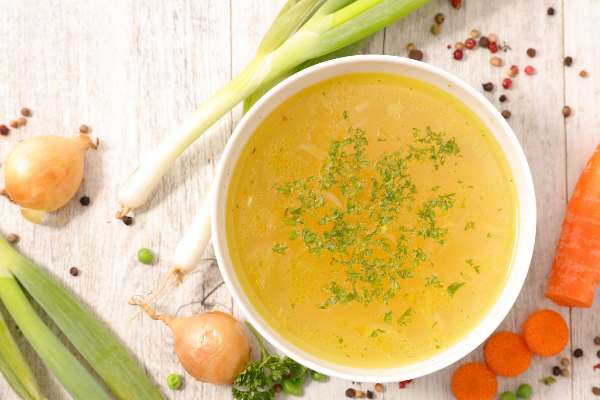Boosting and maintaining a robust immune system
What is our immune system?
First we are going to have to do a little crash course in anatomy and biochemistry here because I’m a huge lover and advocate of teaching people how their body works so that you can learn to heal yourself! So let’s find out how our incredible body works to keep us healthy on a daily basis.
Immune regulation is a complex and highly efficient response that is contributed to by several organs, cells and systems within the body. This includes the lymphatic system, bone marrow, the thymus, peyers patches within the gastrointestinal tract, adenoids and tonsils, the spleen and physical barriers like the skin and internal mucous membranes.
They all serve to ‘sense and respond’ to anything getting into the body that shouldn’t be there (AKA bacteria, toxins, fungi, parasites or viruses). Within this organization, there are two main regulatory ‘systems’ of the immune system that respond both immediately and adaptively to environmental conditions.
Each system relies on the optimal health of the body to make new red and white blood cells, cleanse and circulate lymphatic fluids and regulate accurate chemical signalling to allow the body to communicate and respond in immunological manner.
The innate immune system
You are born with this, and it is our body’s first response to a potential invaders. From birth, your skin, respiratory tissues and mucous membranes all can inherently sense a pathogen or deleterious microbe and will send in phagocytes (white blood cells) to surround and cover the pathogen. It’s our first line of response and it happens within minutes of invasion. Think of it as a security guard on patrol!
The adaptive immune system
This response is developed over time, when your body is exposed to viruses, microbes or chemicals by-products released by pathogens. With help from the innate immune system, your adaptive immune system will then develop anti-bodies against the bacteria and viruses we may come across so that we can defend ourselves against them from that point forward. It essentially uses an ‘immunological memory’ to learn about the threat and enhance the immune response accordingly. This can take several days to develop but lasts a lifetime.

So how do we best support our immune system?
The best thing we can do is eat foods with key nutrients that provide the chemistry for these systems and immune cells to be developed and regulated efficiently. We know there is a bidirectional interaction among nutrition, infection and immunity: the immune response is compromised when nutrition is poor, predisposing individuals to infections, and a poor nutritional state may be exacerbated by the immune response itself to an infection. So when we are sick we need to up the ante with good food and targeted nutrition!

Don’t Forget..
- Exercise improves circulation and detoxification.
- Sleep is vital for immune response – 8 hours minimum.
- Hydration helps the body to circulate immune cells -clean water 1-2 L per day.
- Manage Stress, it is one of the biggest immunosuppressant’s. Your body can’t combat infection when it’s ‘fight or flight’ mode.
- Limit alcohol and refined sugar these are also major immunosuppressant’s – for up to five hours after ingestion!
- Good Hygiene washing your hands goes a long way in
preventing illness.
Key nutrients needed by the immune system

Vitamin A
Helps regulate the immune system and protects against infections by keeping skin and tissues in the mouth, stomach, intestines and respiratory system healthy. Get some more vitamin A from foods such as sweet potatoes, carrots, capsicum, broccoli, spinach, apricots and eggs.

Vitamin C
Supports the immune system by stimulating the formation of antibodies and protects white blood cells. Include more sources of vitamin C by choosing foods such as oranges, kiwi, acerola cherry, Kakadu plum, tangerines, capsicum, papaya, and strawberries.

Vitamin D
Can help modulate the
innate and adaptive immune
response. Increase your
intake with foods such as
fatty fish (salmon, mackerel,
tuna and sardines), eggs and
mushrooms.

Vitamin E
Works as an antioxidant to
support immune function.
Include more vitamin E in
your diet with sunflower
seeds, almonds, hazelnuts and
peanut butter.

Zinc
Is crucial for normal
development and function of
cells mediating nonspecific
immunity such as the
neutrophils and natural killer
cells. To increase zinc, include
more oysters, crab, ethically
sourced organic lean meats
and poultry, pumpkin seeds,
probiotic yogurt or kefir and
chickpeas.

B2
Speeds the clearance of
bacteria from the body and
also lowers levels of molecules
that cause inflammation.
Increase B2 by eating more
almonds, asparagus, organic
chicken and beef.

B6
Is vital to supporting
biochemical reactions in the
immune system. Vitamin B6-
rich foods include organic
chicken and cold-water fish
such as salmon and tuna as
well as green vegetables and
chickpeas.

Folic Acid (Folate)
Is needed to make DNA and
RNA, the genetic material
that dictates cell functions,
including immune cells. To
increase folate eat foods such
as beans, peas as well as leafy
green vegetables.

Iron
Is necessary for immune cells
proliferation and maturation,
particularly lymphocytes.
Heme sources of iron are
abundant in organic lean
meats, poultry as well as
seafood. Vegan sources
include beans, broccoli and kale.

Selenium
Levels are important for
initiating immunity, but they
are also involved in regulating
excessive immune responses
and chronic inflammation.
Good sources of selenium are
in garlic, broccoli, sardines,
tuna, brazil nuts and barley

Probiotic Bacteria
has a very important role
in modulating our immune
response. Some of the most
common strains that reside in
our gastrointestinal tract are
shown to promote T cells and Natural Killer cells as well as stimulated adaptive immune antibody production. Get more probiotics in your diet by increasing foods such as kefir, sauerkraut, kombucha, fermented yogurts and miso. Alternatively, you can get good quality broad spectrum probiotic formulas from qualified practitioners.
Eliminate foods that disadvantage immune responses:

Processed foods
Fried foods, baked goods, fast food, and convenience meals (all the wrong kinds of fats and sugars).
Refined carbohydrates
White bread, pasta, crackers, chips, biscuits and
snack bars (don’t need the insulin spike).
Processed meats
Bacon, salami, bologna, beef jerky, and lunch meats (preservative central here).
Sugary beverages
Sodas, fruit juice, sweet teas, sports drinks, and energy drinks (liquid sugar and artificial flavour).
Added sugar
High-fructose corn syrup, table sugar, agave nectar, artificial sweeteners (Immunosuppression and decrease of white blood cells).
Immune remedies
Some of the best immune remedies are those that have stood the test of time and have been passed down from generation to generation. So think back to what your Grandmother’s and great Grandmother’s used to make. Here’s a few below:

Bone broth
Bone broth supports immune function by promoting the health of your gut and reducing inflammation caused by leaky gut syndrome. The collagen and amino acids (proline, glutamine and arginine) found in bone broth help to seal openings in the gut lining and support its integrity as well as providing a wide range of minerals. We know that gut health plays a major role in immune function. Check out the broth recipes in the recipe vault!

Ginger
Ginger root and ginger essential oil can treat a wide range of diseases with its immunonutrition and anti-inflammatory responses. Research shows that ginger has potent antimicrobial and antiviral potential, which helps in treating infectious diseases. Make that old-fashioned lemon, ginger and honey tea. There’s a ginger tea recipe in the recipe vault under drinks.

Fire Cider
Fire Cider is a long standing remedy to assist in the prevention and treatment of upper respiratory tract infections and colds/flus. Start brewing your fire cider a few months prior to winter and you will have a great tool to rely on at the first sign of the sniffles.
It may be a bit to strong for the kids so you can simply water it down. There’s a recipe for fire cider in the vault under drinks. Or you can purchase a fire tonic from your health food shop.
Immune Supplements
It is best to get as many vitamins, minerals and nutrients from our food as possible but often due to depleted soil, lack of food diversity and other reasons, we need a helping hand with supplements. It is best to work with a Naturopath, Holistic Nutritionist or Integrative Practitioner so that you don’t waste your money on supplements that you don’t need as the quality ones can be quite expensive. Here’s some supplements to help support your immune system.

ASTRAGALUS
Used in Chinese Medicine for 1000’s of years, we still use it today to increase white blood cell count, to essentially ‘build a bigger army’ and stringer immune response. This can be used safely long term for people that are immunocompromised. My favourite brands – Fusion Astragalus 8 or Eagle Immunoadapt due to quality and research.

MEDICINAL MUSHROOMS
Beautiful mushrooms such as reishi, maitake, turkey tail, shitake and cordyceps can assist in the production in macrophages, modify inflammatory cytokines and boost the structure and strength of our cells. Try to get a blend of at least three of these and your body will be thanking you! My favourite brands – Superfeast Mushrooms or Bioceuticals Ultra Defense Mushroom 7 due to quality and research.

VITAMIN C / ZINC POWDERS
There are some awesome food based vitamin C powders out there now days (Wild C andGreen Nutritionals) as well as some great practitioner formulas with liposphereic or highly absorbable vitamin c/zinc blends with bioflavonoids for absorption. Look for Bioceuticals Ultra Potent C or Orthoplex Ultra Buffered C due to quality and research.

VITAMIN D
This is one supplement that I always bring out in the winter months. We don’t get out as much or simply cover up more in the winter months which means our skin doesn’t have the same opportunity to absorb and metabolise vitamin D. Vitamin D can be easily taken in drop or caplet form for the whole family. My favourites are Bioceuticals Liposomal D Spray or Orthoplex Vitamin D due to quality and research.
